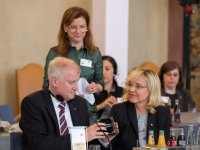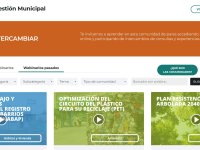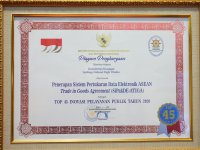RLS-Sciences is a network supporting multilateral scientific cooperation between 7 regions on 5 continents, in the context of a political regional development forum. It was developed to take advantage of the scientific potential in the regions, to advance science via an organised network of cooperation, and to inform regional policies. The structured collaboration occurs at the intersection of science and government and is based on the principle of mutual trust and the culture of dialogue.
Innovation Tag: Cross-Border Innovation (Top 37)
Cities are confronted with complex problems which require collaboration across different levels and sectors of society. City Deals are issue-based partnerships for urban sustainable innovation between frontrunners in the public and private sector. Ministries, local and regional governments, and businesses working together to experiment and develop solutions for issues such as circular buildings, smart cities and shared electric mobility.
The Hexagon for Public Innovation (HIP) is a model to accelerate the systemic change of organizations that conceives innovation as networks of conversations, shared wishes, visions and affections. Six vectors summarize the key dynamics to transform a classic institution into a dynamic organization. It was launched in the Ibero-American Summit of Heads of State, benefiting key players in 22 countries from public and private sector, as well as civil society.
Case Study
KOPIA – Customized cross-border farming technologies to address poverty and rural challenges
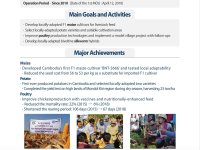
KOPIA (Korea Program for International Cooperation in Agricultural Technology) is an innovative development cooperation platform that facilitates agricultural partnerships among partners and donors, where agricultural technologies can be efficiently scaled up and effectively commercialized. KOPIA consists of three pillars: to develop locally-customized farming technologies; to carry out pilot projects to demonstrate practical effectiveness; and to involve other donors for scaling up.
NATAL’s Helpline was developed 20 years ago to provide an accessible and destigmatized method for those traumatized by terror and war. The Helpline provides state-of-the art trauma-informed mental health care. Twelve years later, in partnership with Pastor Harris and his community, the model was adapted to help Chicagoans cope with trauma from urban violence. This international partnership trained 40 caregivers to help hundreds of callers annually, resulting in healthier outcomes and…
The GCF is the MMC’s response to the unmet needs of cities as they work to support migrants, refugees, & IDPs during COVID-19. By offering direct financial and technical support to cities in low & middle income countries, the GCF proves fiscal feasibility in places that are often disregarded by donors with low-risk tolerance. The vision is to create a model that can be scaled & replicated elsewhere to ensure that global responses to pressing challenges reflect & address realities on the…
Using AI algorithms and photographic images from school buildings in Nepal and Kyrgyzstan, two international public universities collaborated with a team from the World Bank to develop a technical solution to the long-standing problem of identifying the most vulnerable school building infrastructures in hard-to-reach areas of developing countries. With this solution, an estimated 875 million children and teachers at risk of being injured can be better protected from natural disaster harms.
The Municipal Management Portal is an online platform for local government policy practitioners to learn and share expertise and build collaborative networks across Argentina and internationally. The Portal is innovative not only through new applications of technology but also because it reflects a new conceptual understanding of Argentinian local government as open, professionalised and dynamic.
The Indonesian Government has initiated “I-Gateway” as Hub for ASEAN Trading Document, enabling electronic data exchange such as certificates of origin to ensure authenticity, reduce paper work and eliminates redundancy. I-Gateway connects both domestically among national agencies and internationally with other countries. It validates and reconciles documents efficiently, to ensure its security as well as business process simplification and harmonization, aiming to higher ease of doing…
Case Study
Barcelona Alumni: A digital science-policy nexus connecting international talent to local challenges
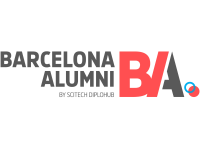
In 2020, Barcelona Alumni’s global virtual platform was launched to leverage the network of international talent educated in Barcelona but residing abroad and contribute to feeding scientific evidence into the local policy-making process. By connecting international experts and local challenges, this first-of-its-kind digital platform provides a pioneering approach to policy-making, making it more crowdsourced, evidence-based, replicable, scalable, accountable, and transparent.

